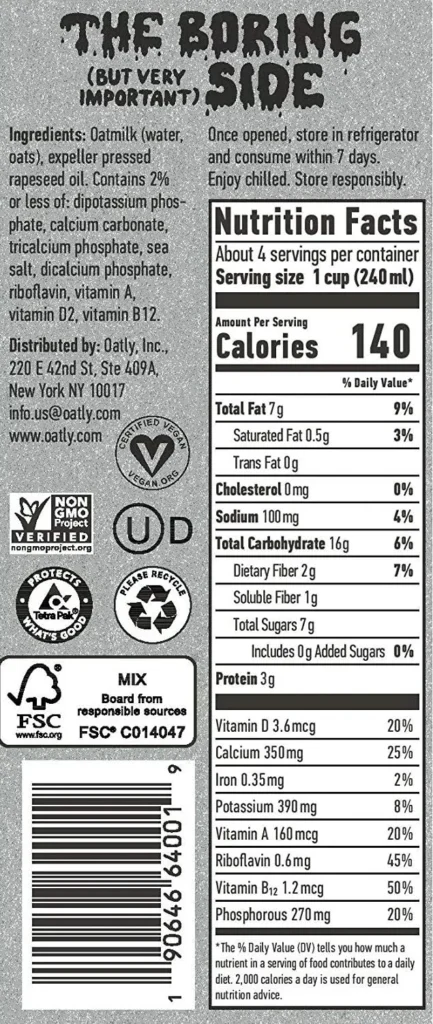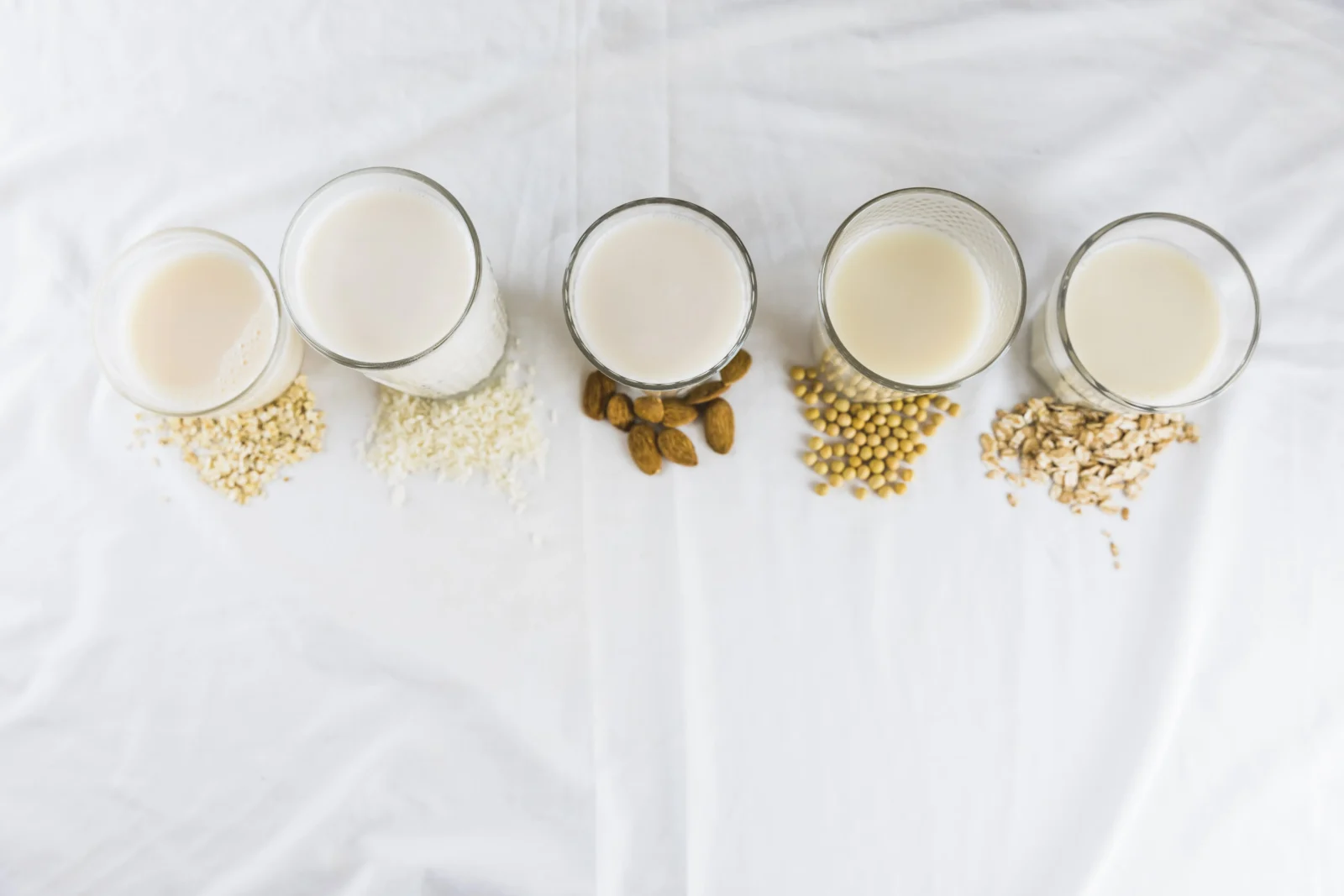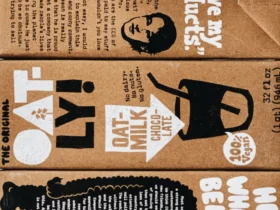In recent years, there has been growing concern about the presence of glyphosate and heavy metals in various food products. Oat milk, a popular dairy-free alternative, has also come under scrutiny. Glyphosate, a broad-spectrum herbicide, has been classified as a probable human carcinogen by the World Health Organization (WHO). Additionally, heavy metals such as arsenic, cadmium, lead, and mercury can pose serious health risks when consumed in high amounts. It is crucial to choose oat milk brands that prioritize safety and minimize the presence of these contaminants.
Mamavation, a trusted source for consumer studies, conducted a comprehensive examination of popular oat milk brands to determine the presence of glyphosate and heavy metals. This study provides valuable insights into the oat milk industry and helps consumers decide about their chosen brands.
Understanding Glyphosate and Its Health Risks

Glyphosate is widely used as a herbicide, particularly in genetically engineered crops. Its usage has increased significantly over the years, which raises concerns about its impact on human health and the environment. The International Agency for Research on Cancer (IARC) has classified glyphosate as a probable human carcinogen. Studies have linked glyphosate exposure to various health risks, including cancer, reproductive issues, birth defects, and harm to beneficial gut bacteria. The extensive use of glyphosate in agricultural practices poses a significant challenge in minimizing its presence in food products.
Heavy Metals in Oat Milk: Why it Matters
Heavy metals, such as arsenic, cadmium, lead, and mercury, are naturally occurring elements that can contaminate food through various sources, including soil and water. When consumed in excessive amounts, these heavy metals can harm human health. They have been linked to a range of health issues, including organ damage, developmental problems, and an increased risk of certain cancers. Avoiding heavy metal contamination in oat milk is crucial to safeguarding consumer health.
Mamavation’s Oat Milk Consumer Study
Mamavation conducted a meticulous oat milk consumer study to assess the presence of glyphosate and heavy metals in popular oat milk brands. The study involved sending thirteen oat milk products to an EPA-certified lab for testing. The lab analyzed the samples for glyphosate, its metabolite AMPA, and heavy metals such as arsenic, cadmium, lead, and mercury.
The findings of the consumer study are as follows:
- Percentage of oat milk products containing glyphosate or heavy metals: Out of the thirteen products tested, approximately 15% (2 out of 13) were reported to contain either glyphosate or some type of heavy metal.
- Identification of brands with detectable levels of glyphosate and heavy metals: Mamavation’s study revealed that about 8% of the tested oat milk products contained glyphosate above the detection level of 10 parts per billion (ppb). Similarly, about 8% of the products contained heavy metals, specifically arsenic, above the same detection level of 10 ppb.
- Presence of Prop. 65 warnings and heavy metal contamination: Interestingly, two popular oat milk brands with Prop. 65 warnings, Rise, and Elmhurst, did not contain detectable heavy metals above 10 ppb. This finding suggests that these brands were absent in the tested batches if they contained heavy metals.
- Absence of glyphosate and heavy metals in organic and “glyphosate residue-free” certified brands: None of the organic or “glyphosate residue-free” certified oat milk brands had any detectable levels of glyphosate above 10 ppb. Additionally, no cadmium, lead, or mercury were found in tested products above 10 ppb.
These findings from Mamavation’s study shed light on the oat milk industry’s commitment to minimizing glyphosate and heavy metal contamination. Consumers can rely on certified organic and “glyphosate residue-free” brands to ensure safer oat milk consumption.
Choosing the Safest Oat Milk Brands

Regarding your health, it’s crucial to choose oat milk brands that prioritize safety and minimize the presence of glyphosate and heavy metals. Mamavation’s study provided valuable insights into brands with no detectable glyphosate or heavy metals levels. These brands include:
A. Safe Brands with No Detectable Glyphosate or Heavy Metals: In Mamavation’s study, several oat milk brands showcased their commitment to providing consumers with safe products. These brands had no detectable levels of glyphosate or heavy metals, making them a great choice for those concerned about these contaminants.
B. Recommendations for Oat Milk Brands with Prop. 65 Warnings but No Heavy Metal Contamination: Interestingly, two popular oat milk brands, Rise and Elmhurst, had Prop. 65 warnings did not contain detectable heavy metals above Mamavation’s detection level. While these brands warrant caution due to the warnings, this finding suggests that heavy metals were not found in the tested batches if they were present. You can consider these brands as an option while taking the Prop. 65 warnings into account.
C. Importance of Considering Organic and “Glyphosate Residue-Free” Certified Brands: Mamavation’s study revealed that none of the organic or “glyphosate residue-free” certified oat milk brands had detectable levels of glyphosate above the detection level of 10 ppb. Additionally, no cadmium, lead, or mercury were found in any tested products above the same detection level. Organic and “glyphosate residue-free” certified brands can be reliable for those who prioritize minimizing glyphosate and heavy metal exposure.
Mamavation’s tests found no glyphosate or harmful metals in oat milks from these great brands:
🌳 Three Trees
⚡ Rise Brewing
🌾 Oatsome
🌟 Kirkland
🥛 Califia
🌿 Planet Oat
🥛 Oatley
☁️ Nut Pods
🌾 Elmhurst
🍶 Chobani
Understanding the Impact of Pre-Harvest Desiccation
To fully comprehend the presence of glyphosate in oat products, it’s essential to understand the concept of pre-harvest desiccation. Pre-harvest desiccation involves applying glyphosate or other herbicides to crops shortly before harvest. This practice aids in drying out the crops, making harvest easier and more efficient.
Unfortunately, pre-harvest desiccation can lead to lower levels of glyphosate in oat-based products, including oat milk. Even if the oats used in oat milk production were not directly sprayed with glyphosate, neighboring crops that were exposed to the herbicide could contaminate the oats through cross-contamination. Therefore, it’s important to note that even oats labelled “glyphosate residue-free” might still contain trace levels due to exposure during pre-harvest desiccation.
Conclusion
In conclusion, selecting safe oat milk brands that minimize glyphosate and heavy metal contamination is crucial for safeguarding your health. Mamavation’s study provided valuable insights into choosing the safest oat milk options. Brands with no detectable glyphosate or heavy metals and those with Prop. 65 warnings, but no heavy metal contamination, can be considered. Additionally, organic and “glyphosate residue-free” certified brands are reliable choices.
Now armed with this knowledge, you have the power to make informed choices when it comes to oat milk consumption. Remember, your health matters, and by selecting brands that prioritize safety, you’re taking an important step towards protecting yourself and your loved ones.






Leave a Reply